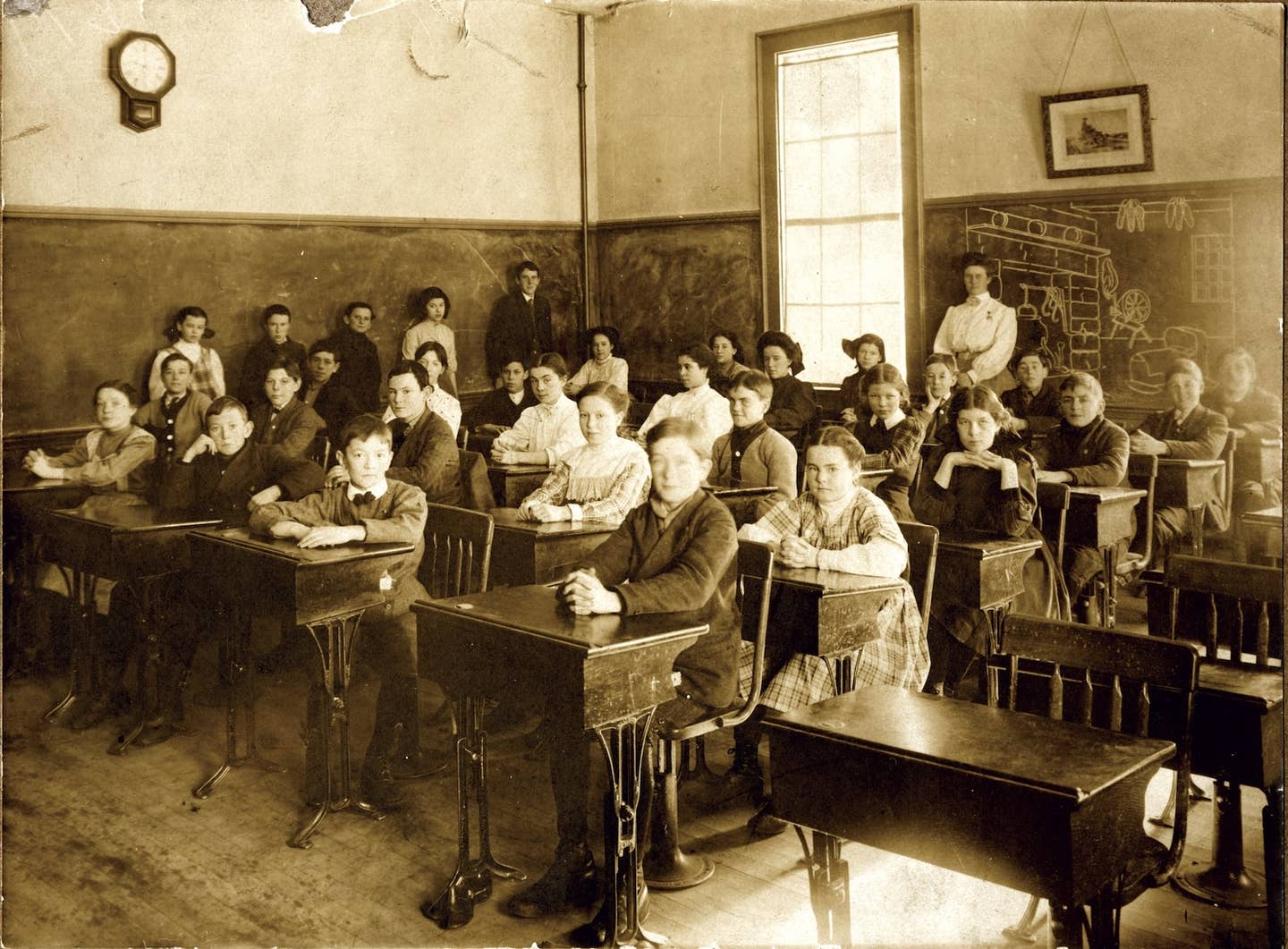CEO of the Cockpit #71: A Pilot Base is a State of Mind
Airline consolidation and bankruptcies usually mean cutting services to save money — and it often means closing pilot bases.

Our airline had come out of bankruptcy and all of us were still alive. Poorer financially, yes, but wiser to the ways of the world and just how much credence to give to the promises of politicians and managers from both sides of the labor/management divide.With any reorganization, changes are bound to come. Our pilot base was being closed and folded into our huge mega-base at our airline's home city. Nobody who has ever worked for an operating airline ever saw the sense of putting all of your flight crews and aircraft into the same location, but the airlines aren't being run by people who operated airplanes. The airlines are being run by failed bankers and the people who used to sell soap flakes.Nobody in the re-structuring committee had asked us lowly pilots, but putting all of your crews in one location is a simple recipe for disaster during an ice storm or even a localized thunderstorm. If all your pilots are located in one place, how are you going to cover the rest of your routes when your one major city is belly-up?Base-closing parties are an airline tradition. This one was no different from any of the others: A group of pilots and others gather near the airport in a motel meeting room and have one last get-together before the base evaporates.
I usually don't go to parties like these but I had been told that a lot of my heroes from years back at the Chicago base were going to be there and I didn't want to miss seeing them. My dream came true and I found myself sitting at a table with six of my favorite captains of all time. Some were retired and I was happy to find that ones I though were dead, weren't.So, at a table festooned with a large, cardboard gravestone with our base's identifier and the usual "RIP" on the front, we seven captains started to tell stories and reminisce. If you are a fan of Discovery Channel's The Deadliest Catch and After the Catch, you can imagine it as pretty close to the latter show. For those of you who don't lay over enough to watch the Discovery Channel, The Deadliest Catch is a show about crab fishermen and the things they go through to bring in their quota. After the Catch is a show that has the captains and others sitting around a table telling stories.It turned out that I was, for once, the youngest captain at the table and I had flown either co-pilot or engineer for all of the others. For some reason they found this to be an opportunity to tell a few stories about me."I remember this guy," said Jimmy Welch as he pointed across the table at me. "He flew his first line trip with me and Rick. Not a bad kid as I remember, but he kept reading magazines when I told him not to and locked himself out of the cockpit ... twice."Locking yourself out of the cockpit of a 727 isn't hard if you are a dense engineer like I was. We didn't have electric door-release buttons like the airplanes do now. In order to open the cockpit door, somebody had to get up and physically unlock the knob and twist it. The engineer was supposed to leave the door unlocked when he left so he could get back in after he went to get coffee or hit the head.I pushed my engineer seat all the way back and then locked the door on my way out. When I tried to get back in, the door wouldn't open, and when I called the other two guys on the intercom to let me in, Rick had to literally climb over my seat to get to the door.
The discussion on my dumbness as a flight engineer reminded me of a phrase I had learned on my first trip and still use today even though I really don't need to."Door!"The flight engineer was often the only person to hear a knock on the door. We didn't use the fancy intercom codes and such we do today. If a flight attendant or anybody else wanted into the cockpit, all they had to do was knock.We rarely, if ever, looked through the peephole. All I would do was lean over to my right while looking to my left. I was looking left to make sure neither the captain nor the co-pilot was doing anything they wouldn't want an outsider to see -- things like looking over porn, reading a magazine, or snoozing. Then I would say, "Door," in a fairly loud voice to warn them that we had "incoming."It was Greg, across the table from me, who reminded everybody about my final door gaffe as a co-pilot for him on the 777. We were flying back from Paris and were at about 30 West. The relief guy was snoozing in the back and we were settled in for a long crossing, which meant we were both reading newspapers.Suddenly, we felt uncomfortable. Kind-of like somebody else was in the room. We slowly put down our papers and looked back to see a passenger standing happily behind our radio console looking out the windshield with a happy grin. Our French wasn't that good, but we finally convinced him that we really weren't supposed to have passengers in the cockpit and would he please go back and sit down? After our guest left, I pushed the cockpit door button on the overhead panel back into the "locked" position, where it should have been in the first place.The captains around my table had finally let go of me as a subject and moved on to another of our Chicago-base brethren: Miles.Miles had the distinction of wishing he had never left the Navy. Not that any of us had anything bad to say about the Navy; it's just that after your fourth day listening to endless stories from this guy about how much better they did this or that in the Navy, you were ready to smack him with the MEL (minimum equipment list -- a very heavy book).Miles was a line-check airman and a favorite buddy of our chief pilot back then, so he was both mocked and even feared a little. When I flew with him, we tended to go more in the mocked direction than the feared.In addition to wishing he wore bell bottom whites all the time, he had a minor confidence problem. The problem was that he really didn't have any confidence. To cover for this shortcoming, he would do a lot of chest-pounding, tell a lot of "There I was ..." stories, and then talk more about how cool it was to be in the Navy.
Frank, who was sitting on my right, chimed in: "Yeah, we had a lot of fun with old Miles. Let's say we were headed right for a thunderstorm. It could be the only big buildup in the sky. Easy, right? Miles would say something like, 'Tell Center I want to go 10 left.' Then I would say, 'Gosh, Miles ... are you sure you want to go left? Right looks pretty good.' The engineer would lean up and add, 'Only a real wuss would go left.' "I broke out laughing at this point because we used to do this with Miles too, but I didn't know that anybody else did it. Apparently, most of the table had because there was suddenly a cacophony of "Yeah, we had him going left and right until he ran smack into the build-up!"We went on with these stories for hours. Stories about how funny it was when Mike would put that rubber chicken under the windshield-wiper blade of the 727 just before he turned in to park at the gate. Stories about how we all had toys in our flight bags to play with. I won the contest on that one: When I was a flight engineer I had a toy robot, a wind-up dinosaur that spit out flames, a Casio keyboard, a yo-yo that lit up when you spun it, and a huge bag of candy, smokes and gum.We must have talked about and told stories on every fun and eccentric captain we ever knew. Many of them were sitting around the table with me. Some were dead and at least one was institutionalized. The one committed to the funny farm was the guy who told the airline for 10 years that he was crazy before they believed him and got him some help. He finally had to punch out a security guard at O'Hare to get their attention. Fun guy to fly with, though ...I looked around at the room, which was now emptying out. At the tables were just the younger guys who would, I hoped, tell stories to their friends about what I dumbass I was to fly with. I just hope the guy I flew with when I accidentally almost landed at Norfolk Naval Air Station would forget my name.The younger pilot's stories wouldn't have flight engineers in them. Later in their careers, they might not even have co-pilots in them. The gist of all their stories would be the same, though: self-deprecating but funny and not about what the non-flying public thinks we talk about at all. Most good flying stories begin and end with the people involved and their personalities, not what the airplane or other machinery did.The base was finally and permanently closed but I had a good warm feeling as I left the funeral at the Airport Holiday Inn. This particular base was the second base I'd worked at since I had flown out of O'Hare, and I hadn't flown out of Chicago for 20 years. But in my mind, I've been Chicago-based ever since I set foot in their pilot lounge back in 1982. Where you are based is a state of mind, not a location.I'll try to remember that as I face the fact that I'll be commuting down to "Red Square" the rest of my professional life.
Want to read more from AVweb's CEO of the Cockpit? Check out the rest of his columns.






